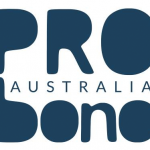Email’s Role in Building Public Trust for Charities

3 October 2017 at 7:30 am
Join Adestra’s charity email expert, Tristam Jones to find out how to stand out from the crowd and raise revenue for your not-for-profit organisation through emails that drive results, in Pro Bono Australia’s latest webinar on 4 October.
To take part in this free webinar click: Email Marketing: 10 Simple Steps to Make Your Supporters Feel Loved.
In this article Adestra account manager Katie Evans explores the value of emails in establishing and maintaining trust.
There are no two-ways about it: people are more tech-savvy than ever and more sensitive about data privacy. With many prominent companies being hacked in the past few years, it’s not surprising that legislation is tightening around data handling, and consumers are more careful with what data they share and with whom.
One of the sectors that has come under a lot of scrutiny is the charity sector. For a business model that functions on the goodwill of the public, establishing and maintaining trust is key – luckily, marketers in this sector have an ally in the email channel. We expand on this in our latest eGuide, Up Close and Personal, but here is some food for thought.
Reassurance
When a person decides to support your cause by donating money or, even better, time to raise funds, they extend an invitation into their hearts because a donation is a gesture of goodwill. It’s something not many marketers can boast about. You might have an affinity for one brand of mustard over another, but you wouldn’t necessarily be passionate about it. On the contrary, supporting a cause is often an emotional decision.
To continue such a powerful connection, charities must extend support from their side as well. If someone is running a marathon to raise funds, or putting a tea party together or simply sharing your story on social media, you can extend a digital handshake via email. And because the inbox is a private environment, you have the chance (and duty) to make it personal. That’s why it’s a great idea for charities to set up a welcome or nurture program to offer information and resources, like Breast Cancer Care did in one of our Campaigns of the Month.
Continuity
It’s a well-known fact that customer acquisition far outweighs the cost of retention, yet companies still don’t focus on retention as much as they should. Sure, you have a great welcome program and you send your ‘thank you’ email after a donation, but what happens next? An important part of building trust with your charity is continuing the conversation past the first step.
Tell your subscribers how the money raised is being spent; you can split it into a pie chart like Oxfam do or you can update them on how their particular donation has made an impact – such as sponsoring a child through school or providing clean water to so many families in a village. And make sure you keep them updated 3, 6 and 12 months down the line! You know your cause and how the donations help better than everyone else, so you should be able to anticipate the journeys and messaging needed to keep donors engaged.
Advocacy
Charity marketers are in a great position in terms of advocacy compared to the private sector. No one donates money on a whim. Therefore you already know that those who donate money or organise fundraising events are passionate about your cause. That’s step one. If you’ve built automated journey programs and an engaging newsletter to keep that passion alive throughout the year, you’ve achieved step two.
Now it’s time to turn that energy into awareness. When your supporters raise awareness of your cause, it’s more powerful than anything because they are already influential in their groups.
World Animal Protection achieved a 33 per cent share-to-open rate in our latest Campaign of the Month. Harness that word-of-mouth and trust by identifying the key contacts that engage with your emails over and over and over again. And then segment and empower them with resources that can help them spread the word; these can be physical or digital like a social media badge.
Key takeaways:
- trust is not built overnight, but if you work hard to plan communications and keep subscribers engaged, it will pay off;
- continuity of communication is important to make donors realise the impact of their support; and
- turn passion into awareness using email in combination with other channels .
Katie Evans is an account manager at Adestra, and is always on hand to help clients achieve stellar results, and develop their email strategy.
Tristam Jones has worked for over ten years in fundraising marketing and events for some of the UK’s top charities, including Macmillan Cancer Support and the British Heart Foundation, where he headed up product development and mass participation.
Learn more and join Tristam Jones for the Pro Bono Australia free webinar on 4 October.
Register here.








